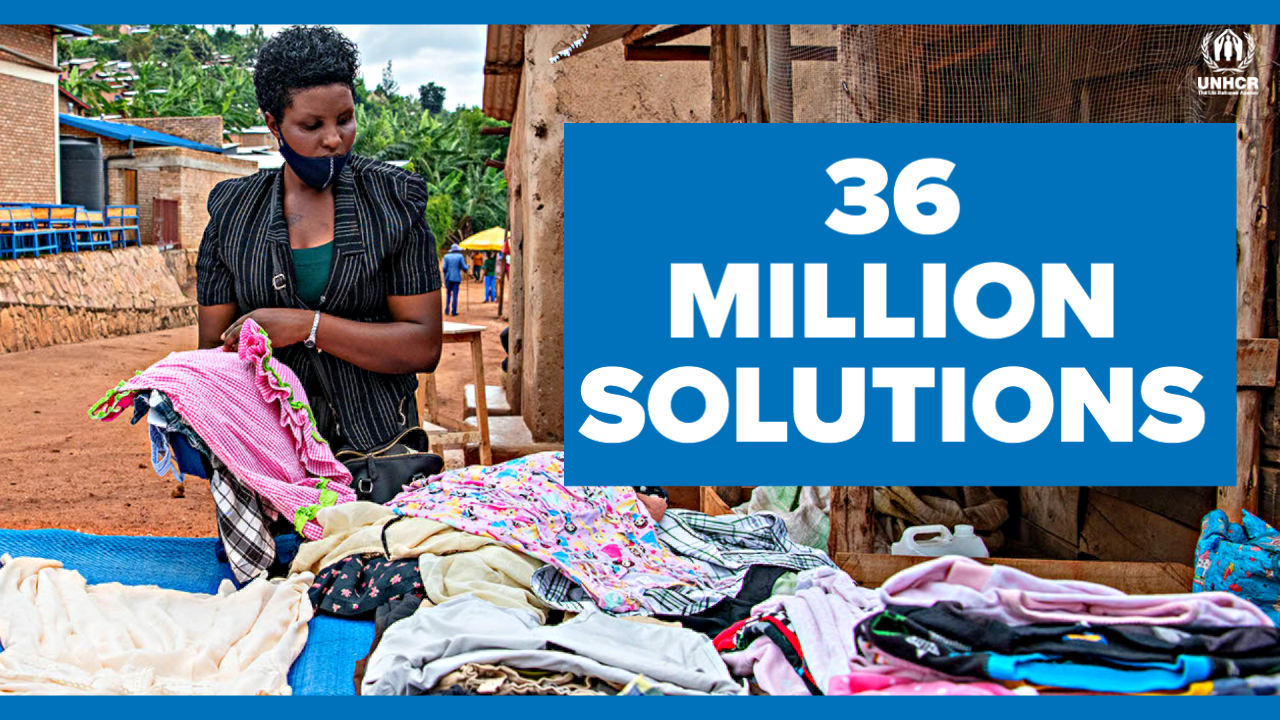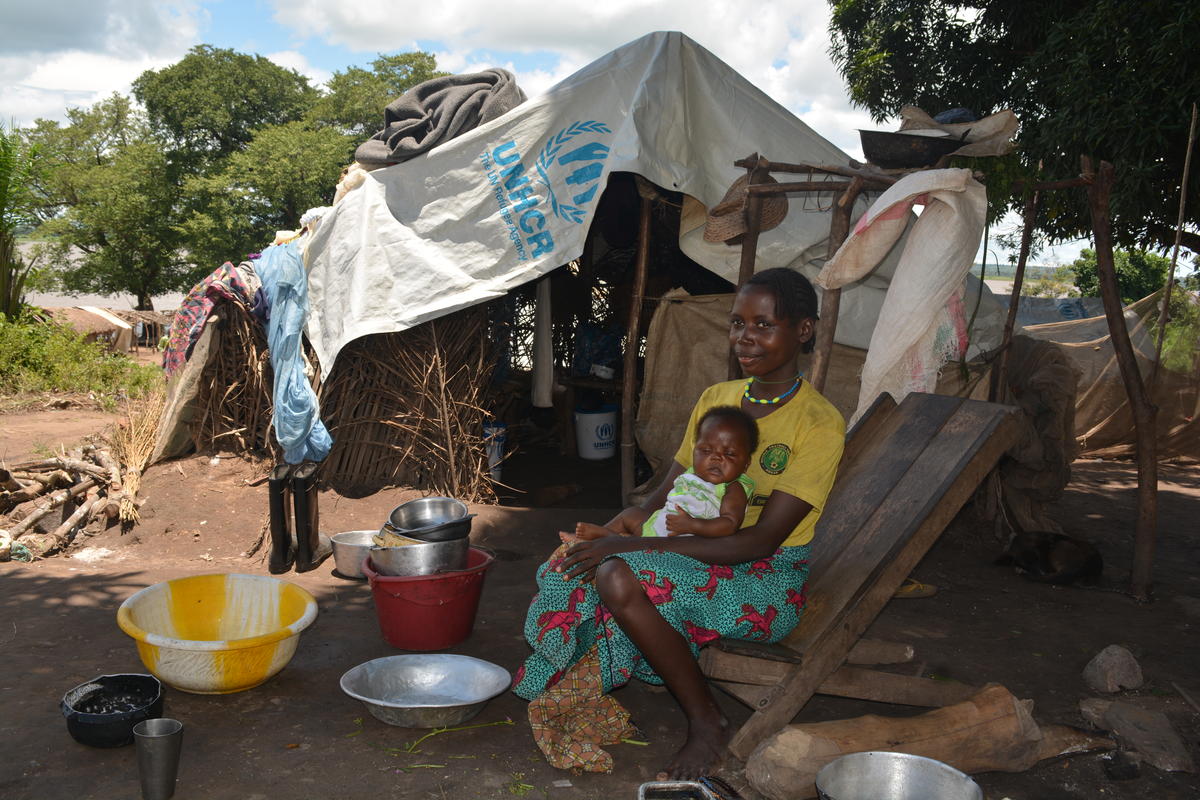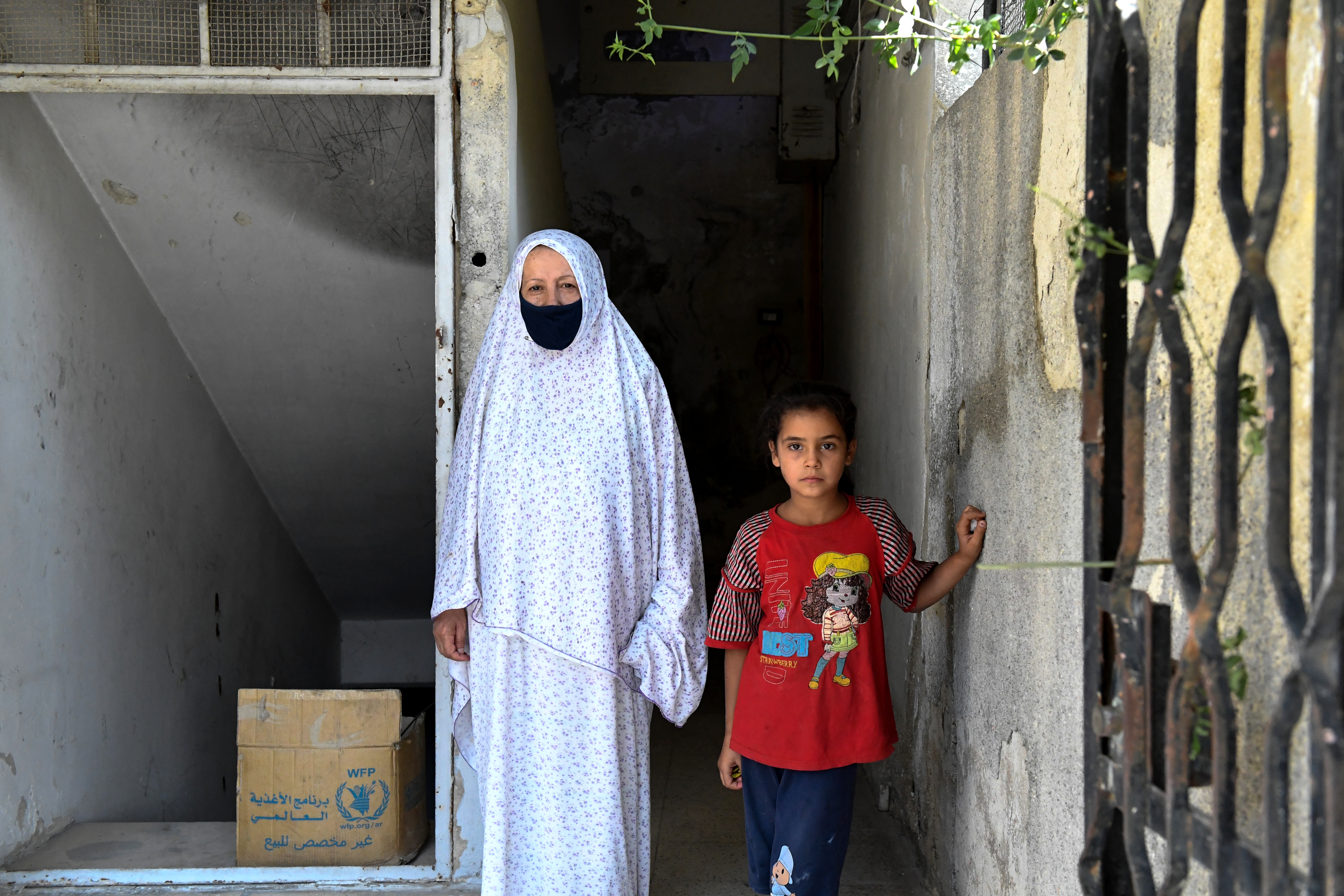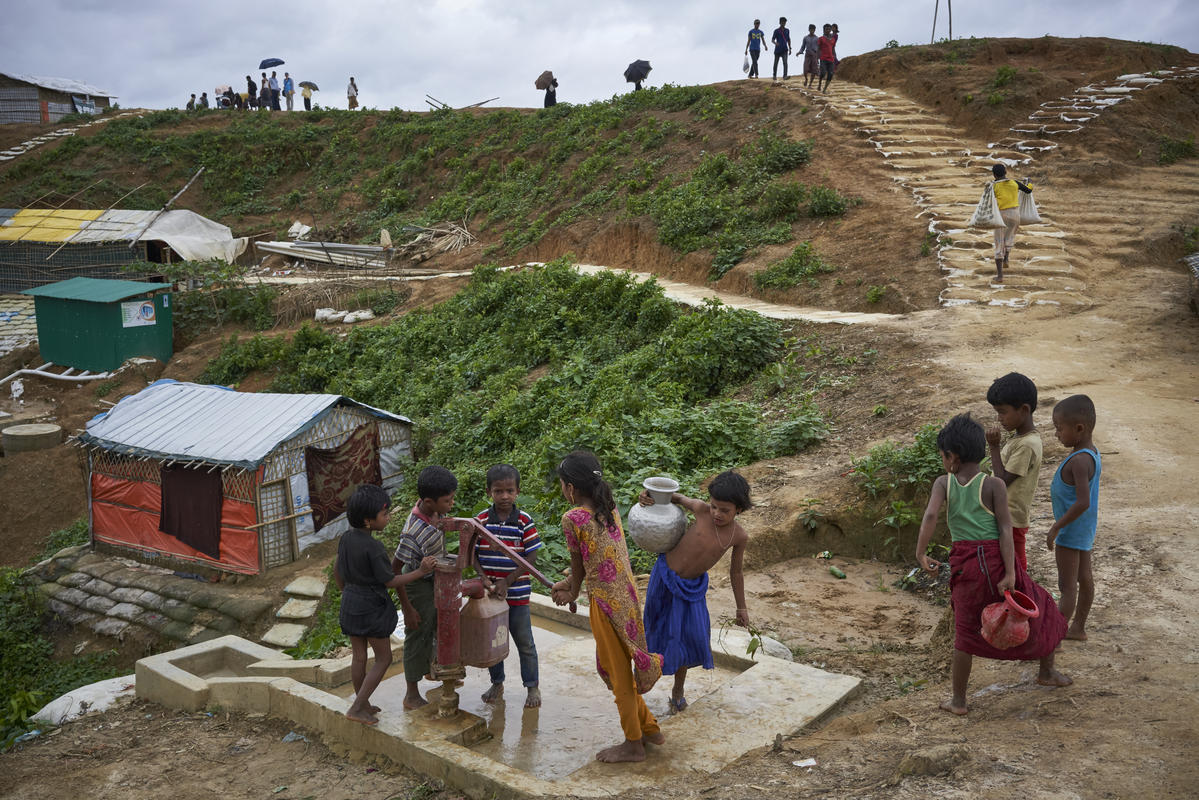Guterres says UNHCR and NGO partners must face challenges together
Guterres says UNHCR and NGO partners must face challenges together

GENEVA, July 1 (UNHCR) - UN High Commissioner for Refugees António Guterres on Wednesday outlined major challenges facing his agency, including the shrinking humanitarian space, and said it was crucial to work closely with non-governmental organizations (NGO) to tackle these obstacles.
"It is indeed essential for UNHCR to keep a very close strategic relationship ... with civil society in general, and the NGO community in particular, because when one looks at the present trends in humanitarian action it is more and more clear that the challenges we face can only be overcome if we work together," Guterres told the annual UNHCR-NGO consultations in Geneva.
In his closing address to the three-day meeting in Geneva's Palais des Nations, the High Commissioner said that the shrinking human space in which forcibly displaced people can find shelter and aid workers operate, was the "biggest concern, I feel, at the present moment."
Noting that he had discussed the issue in several fora, Guterres said: "I do believe that we are facing a very dramatic change that is affecting our capacity to deliver and unfortunately I do not see any signs that things are going to get better before they get worse."
He identified three main factors behind the shrinking humanitarian space: the changing nature of conflict, particularly the multiplicity of parties involved; a hardening of attitudes on state sovereignty; and the increasingly difficult situation where humanitarian aid workers are present in conflict areas.
"It is more and more difficult to be able to guarantee to our staff the minimum of security conditions," he said, adding that this was true for NGO partners and other UN organizations. He cited the killing of two UNHCR staff and the abduction of one more in Pakistan this year as well as the slaying in northern Afghanistan of three staff from an NGO partner of the refugee agency.
It is indeed essential for UNHCR to keep a very close strategic relationship ... with civil society in general, and the NGO community in particular.
António Guterres
Guterres also discussed the shrinking of asylum space, highlighting the development of xenophobic attitudes and its implication in the way migration and asylum are being perceived, particularly recently in Europe. "There are clear tendencies to see foreigners in general as the problem, or the enemy, and that has a serious implication for both your and our actions."
Other global challenges and "mega" trends identified by Guterres included demographic pressure; urbanization; climate change and related environmental degradation and the devastating impact of the global economic crisis on the developing world.
"With the impact of the global economic impact on our resources, and with the shrinking humanitarian space and the shrinking asylum space, I think we are in trouble," he said, adding: "To be honest, I look to 2010 as a very difficult year for our common work."
The High Commissioner outlined reforms undertaken by UNHCR to cut structural costs and channel more funds to field operations, including through NGO partners. These had helped put UNHCR in better shape to face the challenges and to enhance its partnerships - in 2008, work implemented by partners for UNHCR accounted for 35 percent of the agency's budget, up from 31 percent in 2005, according to Guterres.
Some 380 people from about 140 organizations, including 70 national NGOs, attended the meeting, which began on Monday and discussed a wide range of issues of mutual concern during regional and thematic sessions.
There was particular focus this year on urban refugees, protracted refugee situations and the agency's new global assessment programme aimed at determining the real needs of refugees and internally displaced people, the costs of meeting those needs and the consequences of any gaps.
"It's a time for UNHCR and NGOs to meet at the strategic level and for the senior staff of UNHCR to be available for questions and discussion with our partners from all over, not just the partners from Geneva or the headquarters, but also from the deep field. That's what makes it unique," Bernard Doyle, head of UNHCR's inter-agency unit, said earlier this week.
NGOs are vital partners for UNHCR, implementing programmes for refugees and internally displaced people in some of the world's most remote and difficult places.








